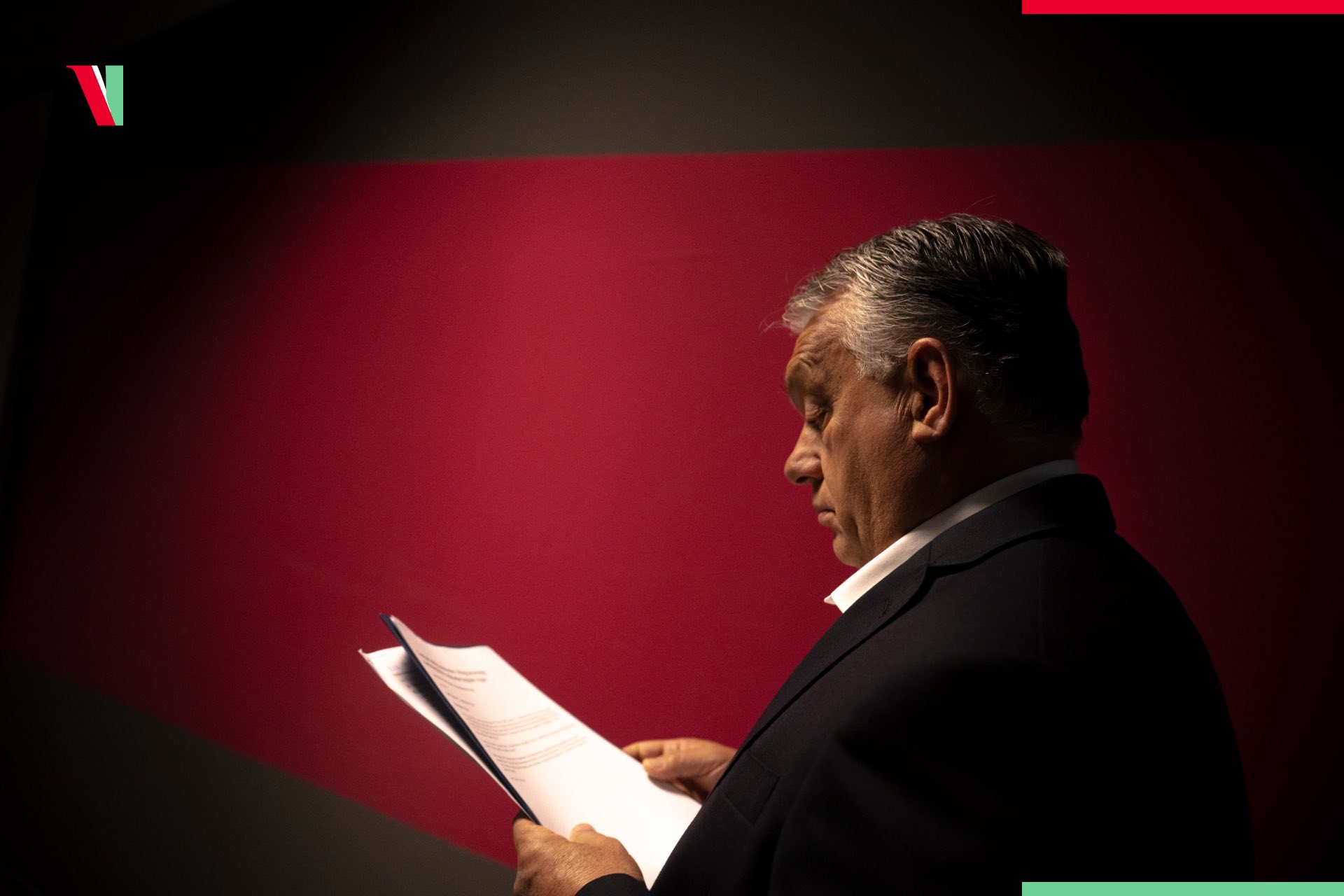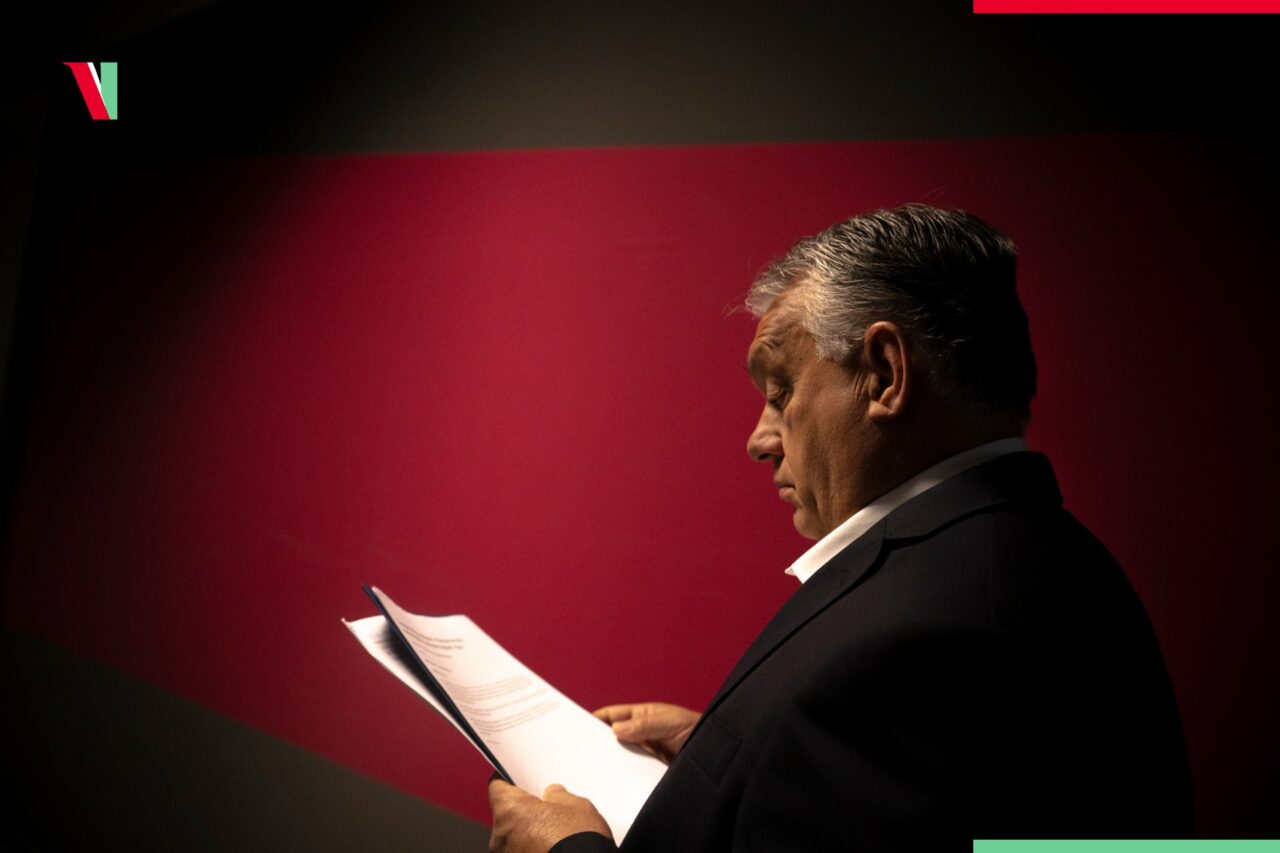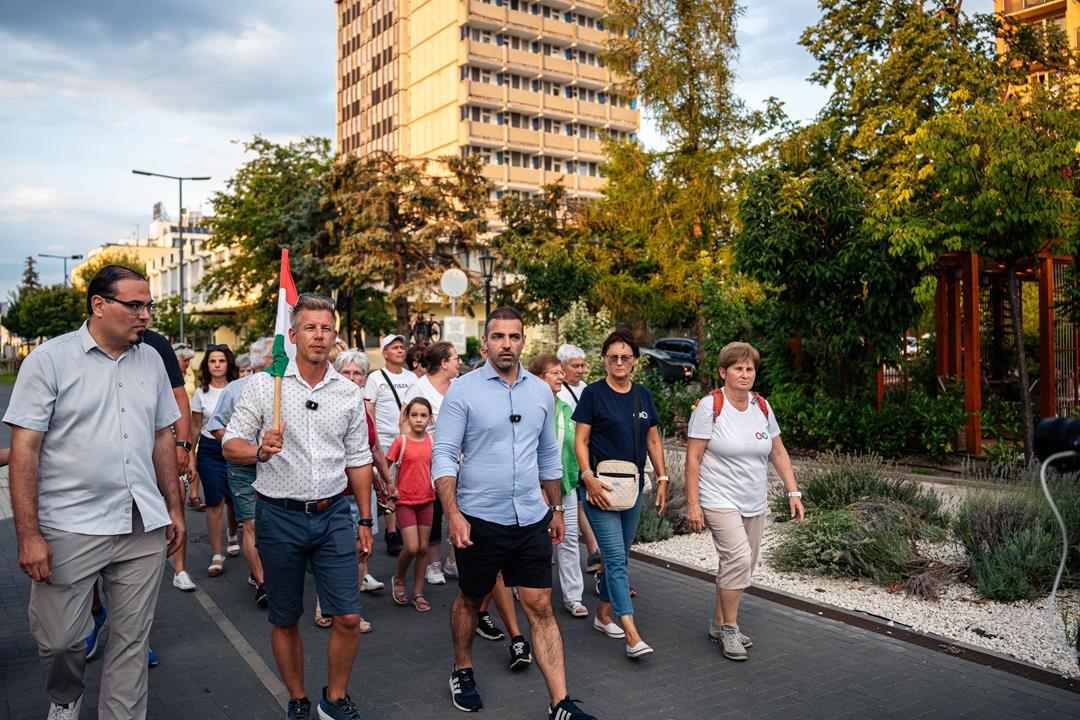Behind closed doors, PM Orbán acknowledged possibility to lose his seat, but spoke of a “miracle weapon”

Despite his confident public statements, Prime Minister Viktor Orbán is grappling with uncertainty about the 2026 election. He believes a ‘miracle weapon’ could help reclaim the narrative from the Tisza Party and Péter Magyar. Behind closed doors, Orbán has reportedly voiced dissatisfaction with the so-called “Fighters’ Club,” and people close to him say the next election may not be about Ukraine but about Orbán himself—a shift that calls for a new strategy.
Is 2026 shaping up to be a referendum?
Experts agree that Hungary is fast approaching an election in 2026 that will feel more like a nationwide referendum—whether Orbán and his ruling Fidesz party, in power for 16 years, should stay or go. Political analyst Péter Tölgyessy believes this could drive voter turnout as high as 80% and effectively transform Parliament into a two-party system. And at the moment, momentum does not appear to be on Fidesz’s side.
Recent polling from independent sources consistently shows the Tisza Party leading by margins over 10%. Even pro-government pollsters acknowledge the gap between Péter Magyar and Orbán’s party is narrowing. While Orbán recently projected a confident win for next April, he has privately admitted the race is wide open and new tactical moves are needed.

Orbán’s ‘miracle weapon’ talk
According to Szabad Európa, a private strategy meeting took place in the unusual run-up to the NATO summit in The Hague. In a two-hour speech, Orbán conceded that the previous narrative—that the Tisza Party would crumble—hasn’t panned out.
However, he expressed confidence that Tisza politicians could be defeated in debates, citing an example where State Secretary Péter Takács, in his view, outshined Tisza MEP András Kulja in a TV appearance. The hope is to portray Fidesz as the more capable governing force.

Orbán also criticised the newly launched, so-called “Fighters’ Club,” saying it hasn’t met expectations. A look at social media reactions to posts from top Fidesz politicians seems to support his dissatisfaction. Still, Orbán is giving the platform more time, expecting it to gain traction by fall.
He emphasised the importance of controlling the public discourse. If Fidesz can’t dominate the conversation by autumn, he warned, the Tisza Party could unseat them in 2026.
Could Orbán be replaced?
In background conversations with Szabad Európa, Fidesz politicians hadn’t denied plans to continue discrediting Péter Magyar. They even hinted at the existence of a secret audio recording involving him.
Although Orbán has said the party should try to win back disillusioned young voters, pro-government media and several politicians have recently clashed with rapper Majka. The artist drew fire for performing a mock execution of a corrupt fictional leader during the Campus Festival in Debrecen—a character many interpreted as a jab at the current leadership.

According to Gábor Török, Orbán has entered the fourth phase of reacting to the Tisza Party’s rise—trying to appear as the seasoned elder statesman, a safer pair of hands than political newcomers. That explains his recent turn to anecdotes and his willingness to tackle tough questions.
However, Török believes the government is making the mistake of viewing its problems as merely a matter of messaging. In a July post, he argued that if communication tweaks fail, deeper substantive or even personal changes—including possibly replacing Orbán—should be considered.
It was previously revealed that Orbán plans to replace a significant number of parliamentary candidates and feature many new faces in the 2026 campaign.
Read more from us:
- New anti-Hungarian graffiti encourage Ukrainians to kill all Hungarians in Transcarpathia, Ukraine’s westernmost county
- What is the problem with the Hungarian euro? National Bank Governor Varga explains
More of our articles on various election-related topics.
To read or share this article in Hungarian, click here: Helló Magyar







